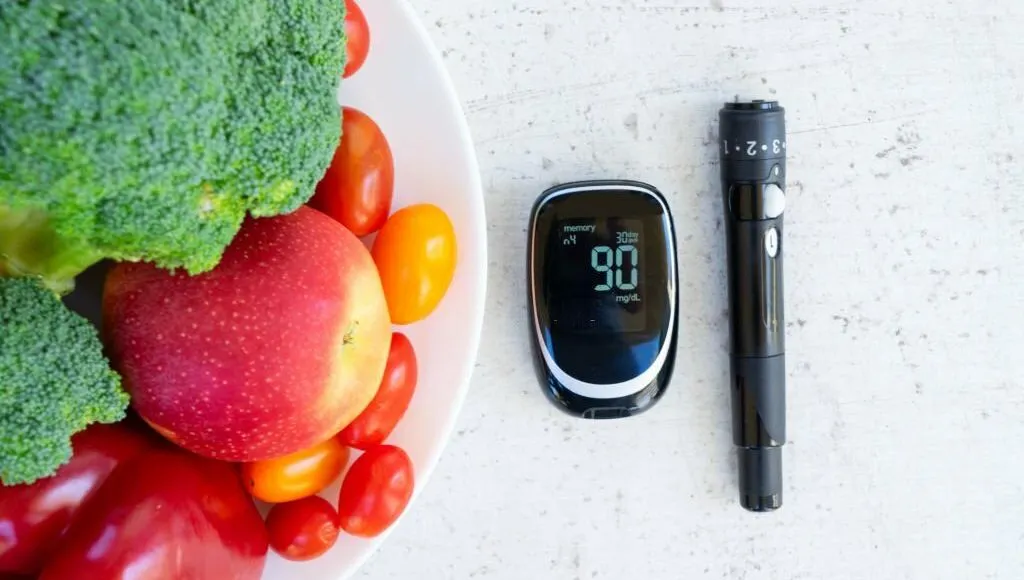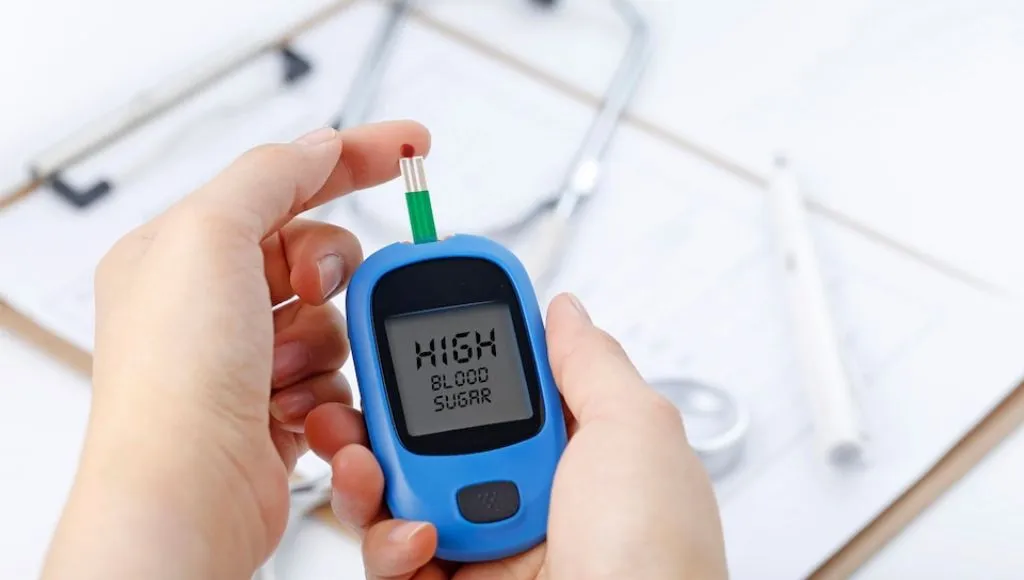Stabilizing Blood GLucose Levels is crucial for overall health and well-being. Unbalanced blood sugar (glucose) levels can lead to several health side effects along with the increased risk of Type 2 Diabetes. Recognizing the significance of this, it becomes crucial to implement the best possible ways of stabilizing blood sugar levels.
This article dives into 10 ways of stabilizing blood glucose levels through simple dietary and lifestyle changes. Make sure you understand them well to attain the maximum benefit.
How To Stabilize Blood Glucose Levels?
1. Balance Your Diet
If you have diabetes or are suffering from instances of irregular insulin spikes, you need to look after your diet. From choosing the right carbs to incorporating enough fiber, a dietary change is necessary. Carb intakes can influence the blood glucose levels strongly.

Add complex carbs (vegetables and whole grains) into your diet to prevent rapid insulin spikes. Similarly, to add more stability, incorporate Fibre-rich food, including fruits, vegetables, and whole grains.
2. Implement Portion Control
Our body releases insulin to help the cells absorb glucose for energy. Upon consuming a large meal, the process of insulin response can overwhelm, leading to a spike in insulin levels and overall elevated blood glucose levels. Therefore, to assist that, portion control along with a balanced diet can help.
3. Regulate Meal Timings
Regulating meal timings and eating at consistent times each day can help stabilize blood glucose levels. This rhythm influences various physiological processes, including insulin release, a hormone that regulates blood sugar levels.
By eating at the same time each day, our body becomes more efficient in anticipating and responding to the nutrients we consume. It also promotes glucose utilization and insulin sensitivity and prevents unusual spikes and drops in blood glucose levels.
4. Exercise Regularly
Engaging in physical activities, especially exercising, increases insulin sensitivity and is beneficial for those who want to manage their blood glucose levels. As you exercise, your muscles require spending energy, and thus, they use glucose as the primary source.
The more you exercise, the more glucose circulates into your bloodstream. This process improves your body’s way of handling glucose, stabilizing blood sugar levels and reducing the risks of insulin spikes. Exercising also contributes to weight loss and weight management, two important aspects to focus on while dealing with diabetes.
5. Monitor Added Sugar
Consuming food and beverages with added sugar causes a rapid spike in blood glucose levels. Our body absorbs sugar very quickly, leading to a sudden insulin spike. Frequent and excessive spikes in blood sugar levels can strain the insulin response, making the individual insulin-resistant over time.
Therefore, monitoring (and limiting) added sugar in daily meals is very important. Cut down on sugar in your teas and coffees, limit your daily consumption of sugary treats, and even avoid fruits like bananas and grapes if you have diabetes.
6. Hydrate Yourself
No matter how basic it may sound, hydration is the key solution for all problems, including insulin and blood glucose management. A well-hydrated body allows kidneys to flush excessive glucose from the system through urine.

Besides that, hydration also boasts metabolic processes, including the breakdown and utilization of carbohydrates from meals.
7. Consume Insuline Friendly Items
Some common food items in your kitchen, including Cinnamon, Fenugreek Seeds, and Apple Cider Vinegar, can help in enhancing insulin sensitivity and regulating blood glucose levels. Either incorporate these items in your daily meals or consume them with water (or infused in water).
Please Note: Although some research shows effective results of the above food items, but is advisable to consult your doctor before adding them to your daily diet. Individuals who are on any diabetic medications must consult a healthcare professional first.
8. Monitor Stress Levels
Stress is affecting your blood sugar levels, more than you may think of. When you are stressed, your body releases cortisol hormones (stress hormones), causing a spike in blood sugar levels.
However, stress-relieving practices like yoga, breathing exercises, and meditation are known to reduce blood sugar levels significantly. Not only that, but these practices may also help diabetic people with correcting insulin secretion.
9. Get Quality, 8 hours of Sleep
Getting a good quality 7 to 9 hours of sleep every night can reduce stress and mitigate inflammation, thus increasing insulin sensitivity. Since sleep deprivation can raise cortisol levels, experts recommend taking 8 hours of sleep every night not just for managing glucose levels but for overall well-being.
10. Maintain Shape and Overall Body Weight
Weight (or fat) gain, especially around the abdomen area, can result in making your body insulin-resistant. However, by shedding overall body fat and maintaining a flat stomach, you can improve insulin sensitivity, preventing abrupt spikes and promoting overall blood glucose stability.
Maintaining a healthy weight also helps in lowering the risk of Type 2 Diabetes.
How And When Should I Check My Blood Glucose Levels?
For Checking Blood Glucose Levels:
- Either do a finger prick test.
- Or, use a Continuous Glucose Meter (CGM)
Individuals With Type 1 Diabetes Must Check Their Blood Glucose Levels:
- Right after waking up in the morning in a fasting stomach.
- Before meals.
- Two Hours after meals.
- During Bedtime.
Individuals with Type 2 Diabetes must check according to their doctors’ recommendation.
Fasting Blood Glucose Levels: Under 99 mg/dL
Blood Glucose Levels (2 Hours) After Meals: 90 mg/dL to 180 mg/dL, varying for individuals and categories.
A significant rise and drop in your blood sugar levels can impact your overall body functions. However, with simple changes in diet and lifestyle, not only can you manage your insulin resistance and stabilize blood glucose levels, but you can also enjoy a well-balanced and healthier life.
Making health-conscious choices is crucial, especially in the fast-paced lifestyle we are living today. The guide above isn’t just limited to adults but is a healthy lifestyle choice for everyone in their teenage years.

